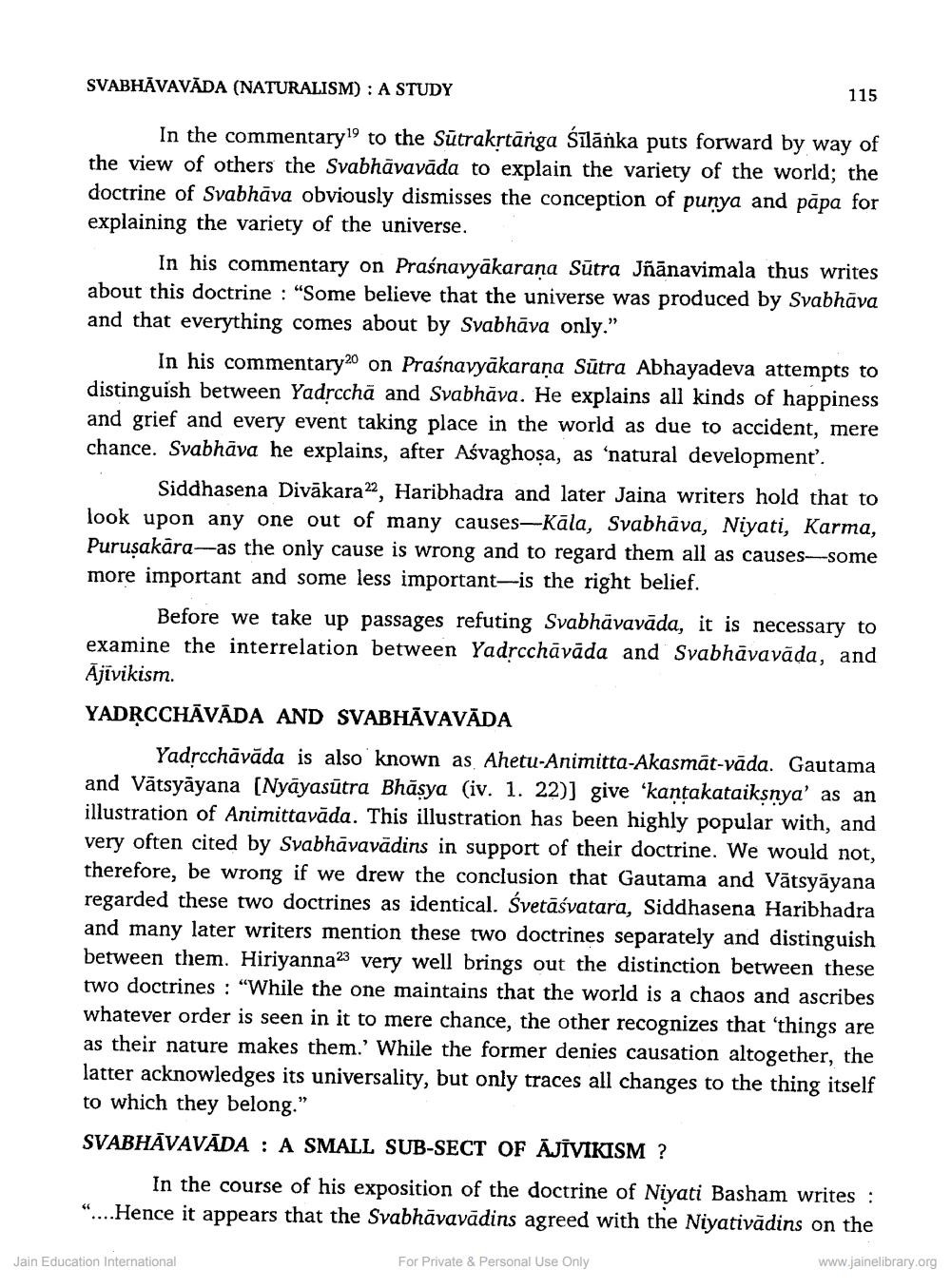________________ SVABHAVAVADA (NATURALISM) : A STUDY 115 In the commentaryo to the Sutrakstanga silanka puts forward by way of the view of others the Svabhavavada to explain the variety of the world; the doctrine of Svabhava obviously dismisses the conception of punya and papa for explaining the variety of the universe. In his commentary on Prasnavyakarana Sutra Jnanavimala thus writes about this doctrine : "Some believe that the universe was produced by Svabhava and that everything comes about by Svabhava only." In his commentary20 on Prasnavyakarana Sutra Abhayadeva attempts to distinguish between Yadrccha and Svabhava. He explains all kinds of happiness and grief and every event taking place in the world as due to accident, mere chance. Svabhava he explains, after Asvaghosa, as 'natural development'. Siddhasena Divakara22, Haribhadra and later Jaina writers hold that to look upon any one out of many causes--Kala, Svabhava, Niyati, Karma, Purusakara-as the only cause is wrong and to regard them all as causes-some more important and some less important is the right belief. Before we take up passages refuting Svabhavavada, it is necessary to examine the interrelation between Yadrcchavada and Svabhavavada, and Ajivikism. YADRCCHAVADA AND SVABHAVAVADA Yadrcchavada is also known as Ahetu-Animitta-Akasmat-vada. Gautama and Vatsyayana (Nyayasutra Bhasya (iv. 1. 22)] give 'kantakataiksnya' as an illustration of Animittavada. This illustration has been highly popular with, and very often cited by Svabhavavadins in support of their doctrine. We would not, therefore, be wrong if we drew the conclusion that Gautama and Vatsyayana regarded these two doctrines as identical. Svetasvatara, Siddhasena Haribhadra and many later writers mention these two doctrines separately and distinguish between them. Hiriyanna23 very well brings out the distinction between these two doctrines : "While the one maintains that the world is a chaos and ascribes whatever order is seen in it to mere chance, the other recognizes that 'things are as their nature makes them.' While the former denies causation altogether, the latter acknowledges its universality, but only traces all changes to the thing itself to which they belong." SVABHAVAVADA : A SMALL SUB-SECT OF AJIVIKISM ? In the course of his exposition of the doctrine of Niyati Basham writes : "....Hence it appears that the Svabhavavadins agreed with the Niyativadins on the For Private & Personal Use Only Jain Education International www.jainelibrary.org




